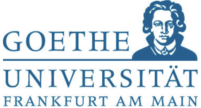
We are very happy to inform you that we offering a Summer School course on the Ethical Implications of AI at the Goethe University Frankfurt.
Dates: 17 – 28 August, 2020 Overview and Course Description: https://lnkd.in/g2frWef
We encourage students (Bachelor, Master, PhD) with different backgrounds, knowledge, geographies to enroll in this course. The topic is highly interdisciplinary and therefore requires different points of views, expertise, and attitudes.
Application process will be open from 01 January 2020: https://lnkd.in/g-DinQR
Course Description
AI is becoming a sophisticated tool in the hands of a variety of stakeholders, including political leaders. Some AI applications may raise new ethical and legal questions, and in general have a significant impact on society (for the good or for the bad or for both). People motivation plays a key role here. With AI the important question is how to avoid that it goes out of control, and how to understand how decisions are made and what are the consequences for society at large.
Students will learn the ethical implications of the use of Artificial Intelligence (AI).
- What are the consequences for society?
- For human beings resp. individuals?
- Does AI serve human kind?
Discussion and debate of ethical issues is an essential part of professional development— both within and between disciplines— as it can establish a mature community of responsible practitioners.
Through ethical reflection students can gain orientation and competencies that will help them in their ethical decision making.
Students will work in small group and learn how to apply an AI Ethical Inspection Process, called Z-inspection, to real AI use cases.
The course will provide an ethical framework (called Z-inspection), domain-specific resources, metrics, processes, tools and case studies, to guide teams of students in their efforts to assess ethical issues in AI, such as for example:
- Fairness/ bias/ discrimination;
- Transparencies / Explainability/ intelligibility/ interpretability;
- Privacy/ Responsibility/ Accountability;
- Safety;
- Human-in the loop.
Z-inspection is being currently developed by the team of Prof. Zicari at the Frankfurt Big Data Lab and it could be part of an Ethics by Design process, or if the AI has already been designed, it can be used to do an ethical sanity check, so that a certain AI Ethical standard of care is achieved. It can be used by a variety of AI stakeholders.
The overall goal of the course is to contribute to closing the gap between “principles” (the “what” of AI ethics) and “practices” (the ”how”).
The course comprises 28 contact hours (8*3.5 hours). Upon successful completion, 4 ECTS (European Credit Transfer System) points will be awarded for the module. A single ECTS point is defined as the equivalent of 25 to 30 hours of student workload. This includes class hours, additional preparations for class activities, readings, assignments as well as final assessments.
Attendance: Participants have to attend at least 80 % of the classes.
Requirements
Students should have an interest in reflecting on what is right or wrong, and it is assumed that they are capable of discussing a scenario and taking a view on whether an action is ethical.
We encourage students with different backgrounds, knowledge, geographies to enroll in this course. The topic is highly interdisciplinary and therefore requires different points of views, expertise, and attitudes.
Instructors
Roberto V. Zicari, Founder Frankfurt Big Data Lab.
Roberto V. Zicari is professor of Database and Information Systems (DBIS) at the Goethe University Frankfurt, Germany. He is an internationally recognized expert in the field of Databases and Big Data. His interests also expands to Ethics and AI, Innovation and Entrepreneurship. He is the founder of the Frankfurt Big Data Lab at the Goethe University Frankfurt, and the editor of the ODBMS.org web portal and of the ODBMS Industry Watch Blog. He was for the past five years a visiting professor with the Center for Entrepreneurship and Technology within the Department of Industrial Engineering and Operations Research at UC Berkeley (USA).
Prof. Thomas Ploug, Aalborg University, DK
Centre for Applied Ethics and Philosophy of Science,
Thomas Ploug is professor of Information and Communication Ethics at Aalborg University Copenhagen (DK). He is Vice head of the Departement of Communication and Psychology. He is member of the Danish Council of Ethics, and member of the Danish SIRI Commission. The SIRI Commission is a think tank founded by Danish politician Ida Auken and the Danish Society of Engineers.
Irmhild van Halem, Ethics Advisor Frankfurt Big Data Lab.
Irmhild van Halem is a member of the Frankfurt Big Data Lab Team providing an interdisciplinary perspective and background on Applied/AI Ethics.
Through many years working in business (Corporate Finance / M&A) she has gained insight in a variety of industries and domains in which AI is used or going to be deployed. As part of her theological and philosophical studies she specialized in ethics. Her experience in due diligence processes and her IT studies and interest are useful for developing the AI Z-inspection framework.
She holds a diploma degree in Business Administration and Informatics (minor) from the University of Cologne. Currently she finalizes her Master degree in Theology at Heidelberg University.
With contributions from Dr. Karsten Tolle, Dr. Todor Ivanov, Mr. Timo Eichhorn (Frankfurt Big Data Lab).
##
